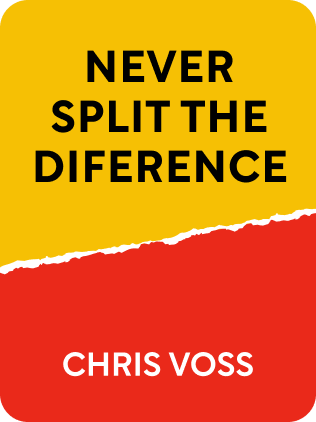

This article is an excerpt from the Shortform book guide to "Never Split the Difference" by Chris Voss and Tahl Raz. Shortform has the world's best summaries and analyses of books you should be reading.
Like this article? Sign up for a free trial here .
How do you identify your negotiation style? More importantly, how do you identify your opponent’s? What negotiation styles are there?
The three negotiation styles are accommodating, analytical, and assertive. The key to a successful negotiation is, then, knowing how to approach each of these styles in consideration of your own.
We’ll cover advice on how to deal with different negotiation styles, and tips if you are that style.
Negotiation Styles
You can get the upper hand in a negotiation if you’re not able to accurately size up your counterpart.
In any negotiation, beneath the swirl of offers and counteroffers are deeper psychological currents that drive hidden wants, fears, and desires. These, in turn, determine people’s negotiation styles. Your job as a good negotiator is to identify them.
There are three negotiation styles: accommodating, analytical, and assertive. Whatever your negotiation style is, don’t project it onto your counterpart. Think of this as the inverse of the famous Golden Rule: treat others as they want to be treated.
Style 1: Accomodators
These are people-pleasers. They value the time spent building a relationship with their counterpart. Accomodators tend to be sociable and agreeable, but also poor time managers.
When dealing with an accommodator, focus your calibrated questions on implementation. This is because they’ll often agree to things that they can’t actually follow through on, since they’re so eager to make you happy.
If you’re an Accommodator, 1) don’t sacrifice your reasonable objections because you’re afraid of conflict. Remember, most good decisions are borne of conflict and discomfort. Lean into it and avoid negotiating with yourself. Also, 2) avoid excess chitchat, especially if you’re face-to-face with a non-Accomodator. As you’ll see below, Analysts will want to get straight down to the facts, while Assertives want to be the ones doing all the talking instead of listening to you.
Style 2: Analysts
These are methodological and diligent people. They want to assess all the facts before committing to a decision. As a result, they’re fairly unconcerned with time and less likely to be pressured by deadlines.
Analysts can be uncomfortably distant and cold, because they’re focused more on the results of a negotiation than on forging a human connection with their counterpart. They see you and the negotiation with you as completely separate entities.
When dealing with an Analyst, use clear, unambiguous data to back up your assertions. Don’t ad-lib, and avoid giving them any surprises. Also, don’t ask too many questions, even calibrated questions. Analysts will tend to not answer them until they have all the information they feel they need to respond: they’ll just treat your questions as just more data to analyze, which will take up a lot of your time.
If you’re an Analyst, don’t cut off your most valuable source of info: your counterpart. You’ll learn more from creating some empathy and connection with them than you can from all of your external research and number-crunching. Be sure to smile when you speak to put your counterpart at ease and get them to be more forthcoming.
Style 3: Assertives
Assertive is the most aggressive out of the three negotiation styles. Assertives hate wasted time and care a lot about meeting and beating deadlines.
They also tend to have an aggressive personal style and can’t listen to you until they feel they’ve been heard. In short, they’re the classic hard-bargainer, the sharks, the type of adversary that many rookie negotiators fear going up against.
But you can use their aggressiveness and their need for tangible accomplishments against them. They’ll be especially vulnerable to time pressures, since the biggest defeat to them is making no deal at all. If you can back them into a corner where they’re facing a deadline, you’ll be in a great position to dictate the terms.
Fundamentally, you need to put an Assertive at ease and get them feeling in control. Use a mix of labels, mirrors, and calibrated questions to prompt a “That’s right” from them. This shows them that you see and understand their worldview and gives you credibility (without them feeling like they’ve conceded something to you).
Mirrors are particularly effective with Assertives. They love hearing themselves talk, so hearing you mirror what they’re saying will boost their ego and convince them that you’re listening.
If you’re an Assertive, watch your tone and use calibrated questions to make yourself more approachable. Remember, browbeating your counterpart into concessions can backfire: they might just be agreeing with you because they’re intimidated by your aggressive style and won’t actually be able to implement the terms.

———End of Preview———
Like what you just read? Read the rest of the world's best book summary and analysis of Chris Voss and Tahl Raz's "Never Split the Difference" at Shortform .
Here's what you'll find in our full Never Split the Difference summary :
- Lessons learned from years as an FBI hostage negotiator
- Why negotiation is about emotional appeals, not rational ones
- The 5 methods for tactical empathy, which gets you what you want by focusing on the other person's feelings






